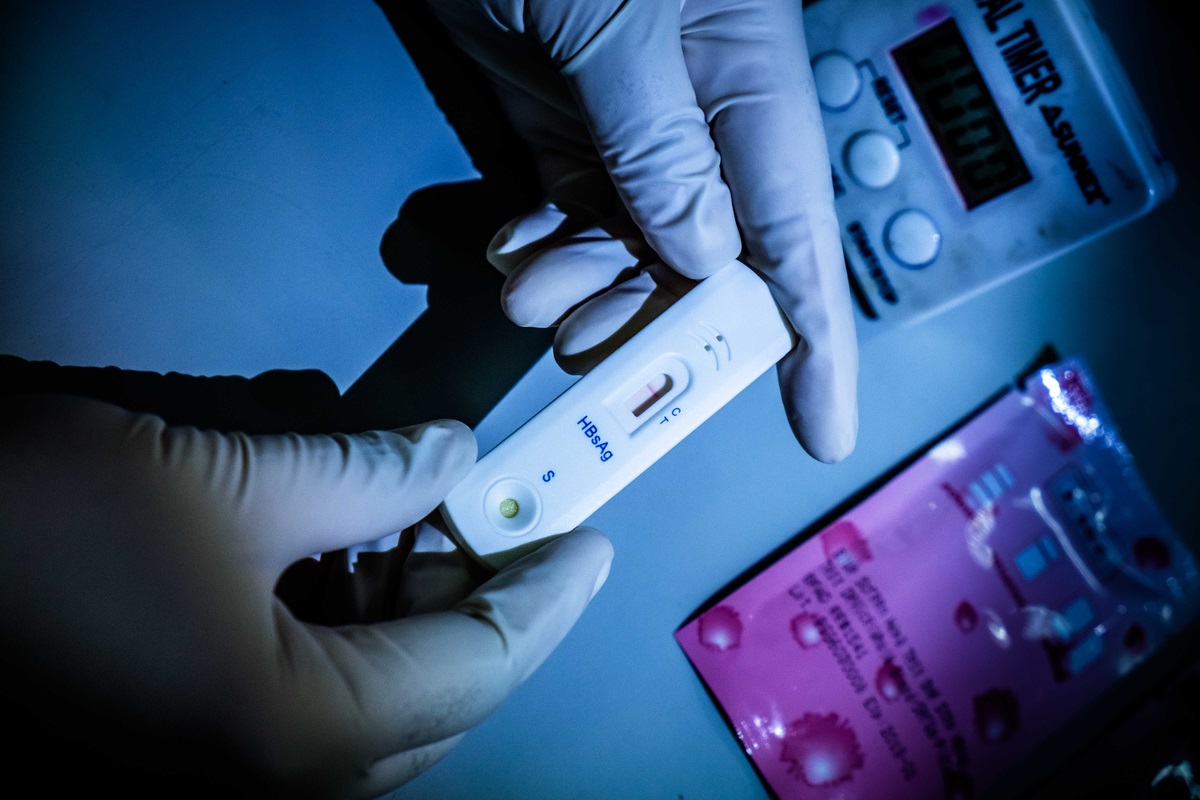For over a decade, 37-year-old Eric* from Manila lived with hepatitis B, carrying the burden of a disease that is often overlooked. Hepatitis B affects well over 250 million people worldwide, 100 million of them in the WHO Western Pacific Region, which covers 38 countries and areas. In the Philippines alone, it is estimated that more than 5 million people are living with hepatitis B. In 2022 − the most recent year with available data − approximately 70 000 new cases were diagnosed, averaging nearly 200 per day.
A dream deferred: diagnosed with hepatitis B
Eric discovered his hepatitis B status in 2010 during a pre-employment medical exam for an overseas job that he had long been dreaming of. At the time, he felt healthy and had no symptoms. When he was told he had hepatitis B and was deemed “not fit to work”, he was heartbroken and confused.
“I didn’t know much about hepatitis then. I felt demoralized and knew my dreams of working abroad were gone,” he said.
Hepatitis B is a liver infection caused by the hepatitis B virus. It is most commonly transmitted from mother to child during pregnancy and childbirth. It can also be transmitted through blood or body fluids or exposure through infected blood via needlestick injury, piercing or tattooing. Hepatitis B is preventable with a vaccine, and in case of infection, can be treated.
The cost of treating hepatitis B can be a significant barrier to seeking medical care. In the Philippines, a month of hepatitis B medication is estimated to cost around US$ 30.
The fear of stigma made him keep his condition to himself. Eric recalls a time when coworkers noticed his skin was a yellowish colour – one of the symptoms of hepatitis. “They started avoiding me. I felt excluded and because of that, I left that job.”
A ray of hope: a path to treatment
It was not until eight years after his diagnosis, in 2018, that Eric began treatment, for which he had to pay out of pocket. “Sometimes I had the medicine, sometimes I didn’t − but I stayed hopeful,” he said.
Then, he met the Yellow Warriors Society Philippines, a community-based organization formed by and for people living with viral hepatitis. The Yellow Warriors advocate for affordable or free access to hepatitis testing, treatment and care, and raise public awareness about the disease to reduce stigma.
“We have been and will continue to advocate for coverage of hepatitis services in the national insurance package”, said Chris Munoz, Advisor of the Yellow Warriors Society Philippines.
Through the Yellow Warriors, Eric learnt how to access free medications at government treatment hubs, which are available around the country. “They helped me access medicines and gave me hope.” However, the medicine supply was still sometimes unstable.
If you get hepatitis B, stay on treatment so that, unlike me, you can avoid developing liver cancer.
Eric, person living with hepatitis B and cancer survivor
To Eric’s relief, his most recent laboratory results show no signs of the tumour, his liver function remains stable and he continues to take routine hepatitis B medication.
“If you get hepatitis B, stay on treatment so that, unlike me, you can avoid developing liver cancer. That’s why testing and access to medicine are so important,” he said. “Community groups, donors and health workers gave me a second chance. I wouldn’t have made it without them.”
Eric dreams of a future where no one feels ashamed of their diagnosis, whether it be hepatitis, HIV or any other disease, and where everyone has equal access to care.
“I want to live a long life − for my children, for my family. I want to continue working and be treated like everyone else.”
* Not his real name
World Hepatitis Day is marked on 28 July every year to raise awareness of viral hepatitis, an inflammation of the liver that causes severe liver disease and liver cancer.
The theme for 2025: Hepatitis: Let’s Break It Down calls for urgent action to dismantle the financial, social and systemic barriers – including stigma – that stand in the way of hepatitis elimination and liver cancer prevention. Let’s make hepatitis elimination a reality by 2030.
